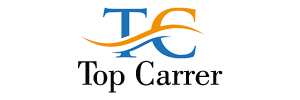
Often, candidates just look at the information a company is pushing out on its own website and social media accounts, but fail to look more in depth at what others are saying. By looking at multiple sources, you’ll get a broader picture of the company , and be ready to talk about why you’d like to work there and what you can do for them. The more time you spend preparing for a job interview, the better your chances will be of acing it. You’ll feel more comfortable speaking with the hiring manager if you’re familiar with the company’s products and services. This question is designed to find out if you’re going to stick around or move on as soon as you find a better opportunity. Keep your answer focused on the job and the company, and reiterate to the interviewer that the position aligns with your long-term goals.
- Again, companies want to hire people who are passionate about the job, so you should have a great answer about why you want the position.
- There are several free online salary calculators that can provide you with a reasonable range based on your job title, employer, experience, skills, and location.
- As a manager, I’ve tried to be intentional about recognizing the strengths of those on my team and delegating tasks that match those strengths.
- Typically this has been in a workplace or home environment but with the advent of mobile internet – contextual interviews may now take place in a wider range of settings and scenarios.
As the interview may be a highly emotional occasion for the applicant, meeting alone with the interviewer is often less threatening. The scoring procedure for oral interview boards has typically been subjective; thus, it would be subject to the personal biases of those sitting on the board. It intentionally creates anxiety to determine how an applicant will react to stress on the job. The interviewer establishes the style and structure of the session based on the purpose of the interview and the relationship between the parties, much as one varies strategies in adjusting to changing circumstances. If the participants establish an understanding and stick to the issue at hand, both parties might have a chance of reaching their goals.
Flooding interviews with researcher’s agenda
After every job interview, take the time to send a thank-you note or email message sharing your appreciation for the time the interviewer spent with you, and reiterating your interest in the job. If there was something you wish you had said during the interview, but didn’t get a chance to, this is a good opportunity to mention it. At the close of the interview, most interviewers ask whether you have any questions about the job or company.

Some participants can feel nervous at the beginning of the interview, especially if they’re not sure what to expect. Start by talking through the purpose of the interview, what kinds of questions will be asked, and how the information will be used. Talking slowly has a calming effect and indicates that you are not anxious and have time to listen.
